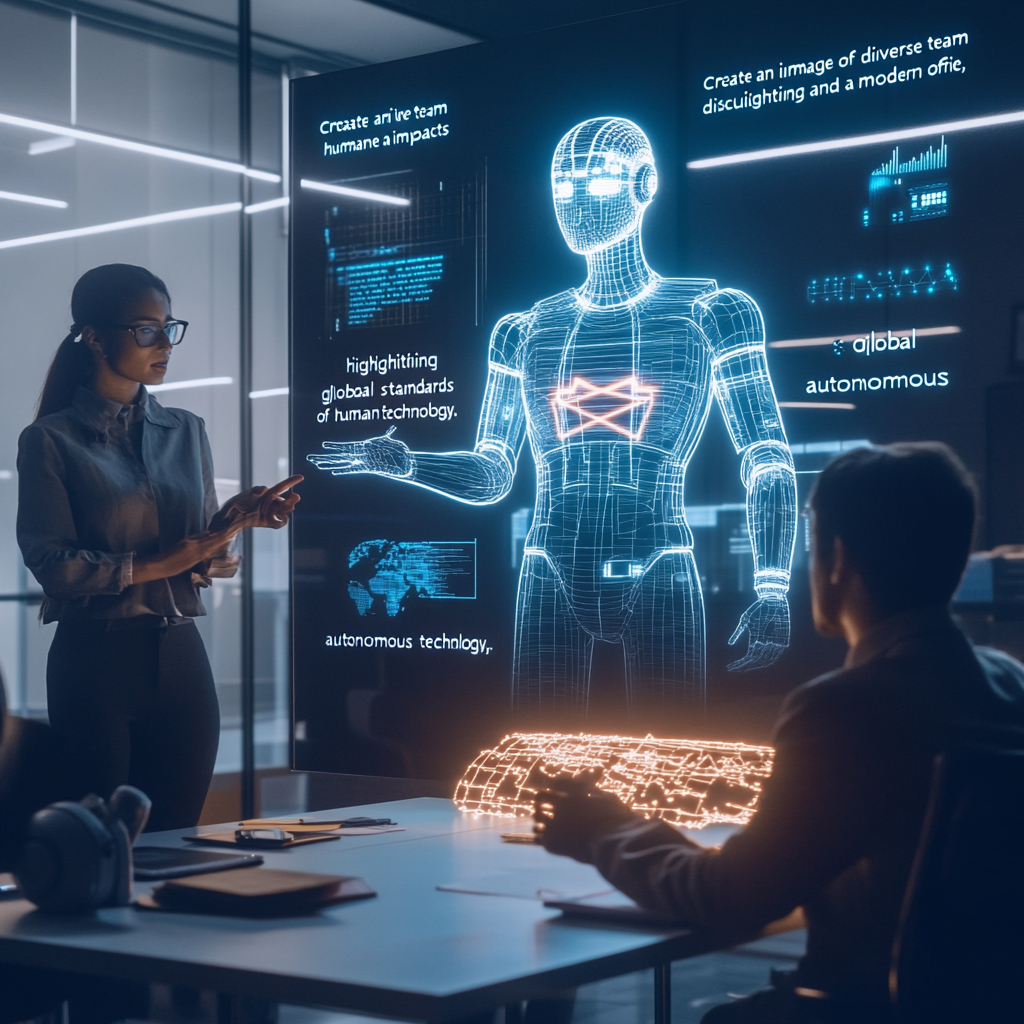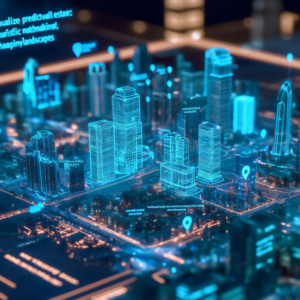
“Exploring the Ethical Implications of AI and Automation: A Review of Current Literature”
In this whirlwind of a world where artificial intelligence (AI) and automation are shaping our very existence, a book has been thrust into the spotlight, promising to unveil the ethical labyrinth we are about to traverse: Humane Autonomous Technology. Edited by the insightful trio of Rebekah Rousi, Catharina von Koskull, and Virpi Roto, this literary endeavor isn’t just a feast for the brain; it's a call to action, a manifesto that urges us to examine the pounding heart of our technological creations and how they might beat in tandem with human values.
Catching the AI Wave: The Human Element at Stake
The crux of the matter, as Rousi succinctly states, is that we must craft AI that’s not just smart but responsible. We’re diving into waters that are tricky—where ethics, morality, and sustainability can become a tangled web. Whether we like it or not, the clock is ticking, and we really have to be cautious about what kind of future we design. According to the book, the rise of workplace automation is not merely a wave of productivity; it’s reshaping employment landscapes as chatbots slide into our offices. The question arises: are we doing this for the good of workers or merely to boost profits? There's a new dance on the floor, and while the robots are slick, the human cost needs a second look.
How will we interact with our mechanical colleagues? This book provides a reality check on the ethical decisions that accompany integrating AI into mainstream business. Are our workspaces becoming more innovative or more isolating? The balance between efficiency and humanity is not a choice but a responsibility that demands our attention.
Navigating Uncharted Waters: Societal Ramifications
The authors dive even deeper, exploring the tributaries of expert knowledge flowing into autonomous systems, particularly in the maritime sector. Think about it—are we ready for a future where ships cruise the seas with no crew at all? Rousi pulls back the curtain on our sometimes stubborn adherence to legacy systems that may not fit with these new-age voyages.
On the legal front, The Cambridge Handbook of the Law, Policy, and Regulation for Human-Robot Interaction emerges as another essential read, edited by the capable Woodrow Barfield, Yueh-Hsuan Weng, and Ugo Pagallo. This text isn’t just a collection of guidelines; it’s a flashing neon sign pointing to the murky waters of human-robot interaction. We’re not only faced with the question of trust—can we trust a robot with our daily lives?—but also the much heavier question of whether these creations should have a place in our legal frameworks.
Should a robot be granted legal personhood? The implications of such a decision could turn our world upside down. As we invite robots to play an increasing role in our lives, the ethical, cultural, and value-based implications are as vast as an ocean. We cannot ignore the moral inevitability of considering how AI robots will navigate the complex maze of human emotions and societal norms.
United We Stand: Seeking Global Ethical Consistency
One voice resonates through these discussions, that of Yueh-Hsuan Weng, advocating for a globally recognized set of ethics for AI. He’s tirelessly working with the Institute of Electrical and Electronics Engineers (IEEE) to establish a database of ethical issues we might face as AI continues to evolve. This collaborative endeavor aims to enable developers to filter their designs through a lens of ethical responsibility—a filter that ideally isn’t smudged by profit motives or technological arrogance.
Machine Ethics: Crafting a Morally Conscious Code
On the flip side, the conversation broadens with works like those by Thomas Wischmeyer and Timo Rademacher, who highlight the necessity of machine ethics. Can we teach machines moral values? That’s the million-dollar question. As the lines between human decision-making and AI programming blur, the need for benevolent AI becomes increasingly pressing.
Virginia Dignum takes the baton, investigating how AI systems infiltrate social structures and pointing out that researchers and technologists must harbor an integrity that goes beyond mere performance. While algorithms crunch numbers, it’s the people behind the screens who must provide the ethical narrative.
Finding Ethical Harmony Amidst Cultural Diversity
Now, let’s be real. Cultures are diverse, and ethical principles may look different from one part of the world to another. Yet, when the stakes are high, like in life-or-death situations, is it possible to find common ground? The "Moral Machine" experiment spearheaded by Professor Iyad Rahwan from MIT attempts to tackle just that. The concept is simple but profound: when cars drive themselves, how do we program them to make moral decisions? Is a life saved worth more than a life taken? The responses across different cultures provide a window into the ethical landscapes that shape our present and future.
In Summary: The Path Forward
As we stand teetering on the brink of AI-enhanced existence, the need for a robust ethical framework is more pressing than ever. The books discussed here are not just ink on paper; they are beacons, essential for developers, policymakers, and everyday folks alike as we tackle these tricky dilemmas head-on. These texts usher in a human-centric approach to AI, bridging the chasm between rapid technological advances and our intrinsic human values.
So, if you're curious about the ethical machinery that governs AI, let these scholarly resources guide your thoughts and conversations. Dive headfirst into the debate—engagement is key!
Want to stay up to date with the latest news on neural networks and automation? Subscribe to our Telegram channel: @ethicadvizor
Keeping ourselves informed is not just a matter of interest; it's a matter of survival in this brave new world of AI. Embrace the knowledge, engage in discussions, and let’s ensure that as AI evolves, it evolves in a way that mirrors our highest ideals.

